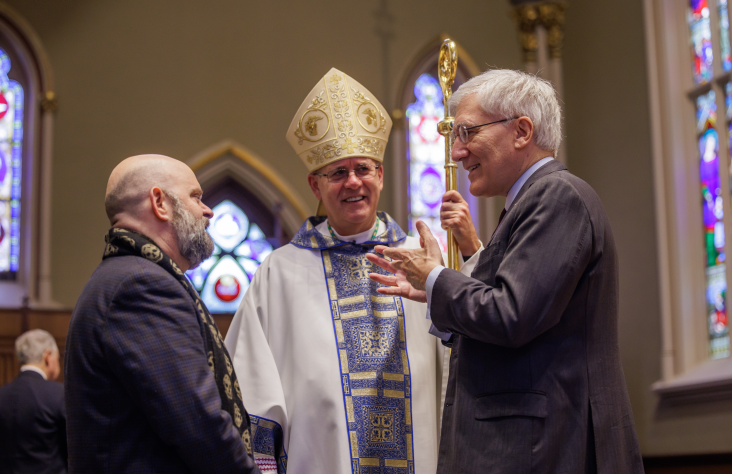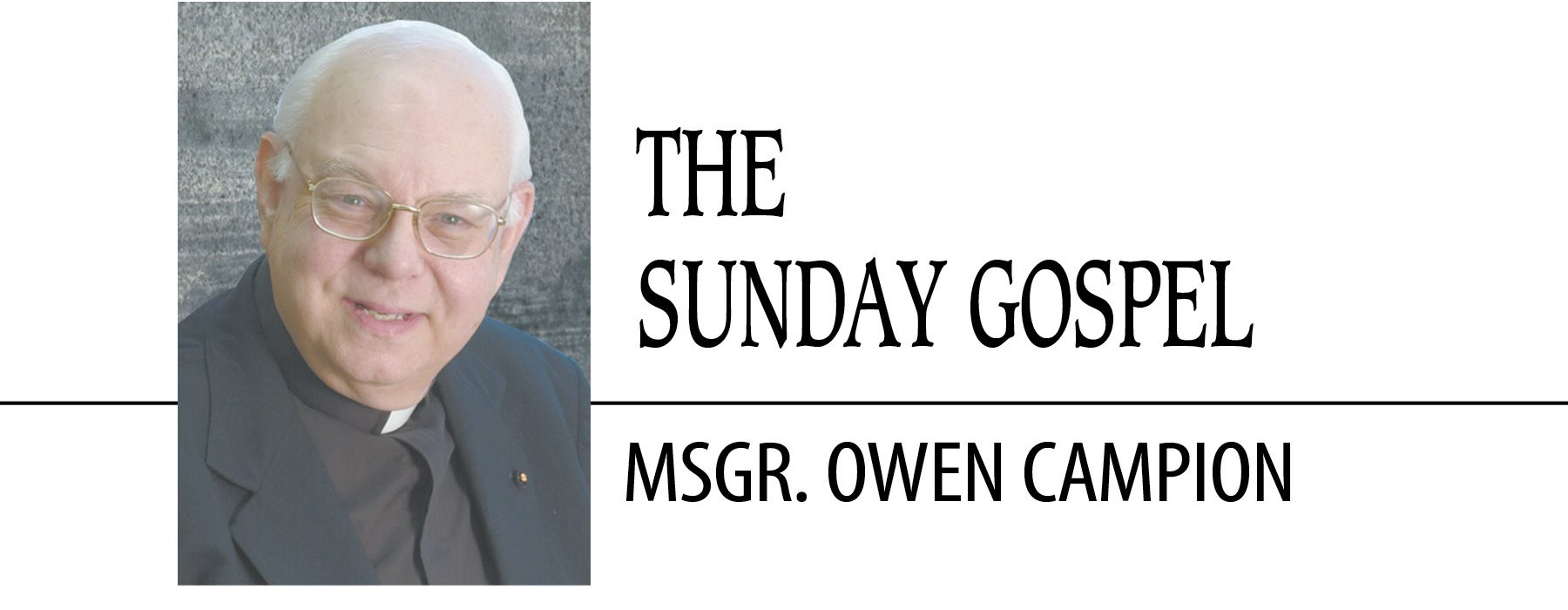August 3, 2019 // The Sunday Gospel
Grow rich in what matters to God
Eighteenth Sunday in Ordinary Time
Luke 12:13-21
The first reading this weekend is from the Book of Ecclesiastes. The first verse states that the book is the work of Qoheleth, a son of King David, although no proper name actually is used. The book’s origins, despite this tradition, are puzzling.
The book’s name comes from the Greek, and then the Latin. This book seems to show a Greek influence, but Greek culture did not influence the Jews until centuries after Solomon. Then, however, its Hebrew is of a style used long after Solomon’s time. Many scholars today believe Ecclesiastes dates from only two or three centuries before Christ.
A virtual trademark of this book is its condemnation of human vanity. This scorn of vanity is in this weekend’s reading.
Vanity, of course, affronts God, who is almighty and the perfect. It also displays the ignorance and illogic of humans, who overestimate themselves by seeing in human thought the greatest wisdom. Vanity also leads them to regard material wealth as ultimate value. It eventually causes them to spurn, or to discount, God.
For its second reading, the Church presents a passage from the Epistle to the Colossians. Continuing the general message of the first reading, this selection calls upon Christians to focus on the things that truly matter: namely, the things of God. It counsels believers to rise up against temptations of this world. It sees sin as, in essence, idolatry.
St. Luke’s Gospel furnishes the last reading. Jesus appears in this reading as a mediator, asked by “someone in the crowd” to resolve a dispute about inheritance. Readers of the Gospel are accustomed to such questions being put to the Lord. Did this person in the crowd, unnamed and unidentified in the Gospel, intend to trick Jesus, to put Jesus in an awkward position, to draw Him into the middle of an argument, and put Him at odds with some in the crowd?
Possibly. Still, inviting anyone to mediate a dispute was a compliment. Questions such as this presupposed that the person being questioned possessed knowledge. Furthermore, it presupposed that all sides would respect the integrity and wisdom of the mediator. Not surprisingly, outright strangers, whose credentials were unknown, were never invited to mediate between arguing parties. Jesus was among people who knew Him, maybe with great deference, to be a wise and informed teacher.
As would have been the etiquette of the time, Jesus hesitates before proceeding.
Under Jewish custom, surviving children did not have to negotiate a clear division of a deceased parent’s belongings. There must have been a problem, but rather than plunging into the argument, the Lord advises avoiding greed, insisting that material wealth has no permanent worth.
The Lord then tells the parable, or story, of the landowner who had good fortune. His harvest was great. He plans to store the harvest so as to provide for his easy living in years ahead. Such reasoning is foolhardy, Jesus said. No human can truly control his or her future. He then urged distributing any abundance among the needy.
Reflection
From the earliest times, people have dealt with the human tendency to measure all things, even life itself, in material terms. It was a tendency with which the author of Ecclesiastes dealt. The Colossian Christians dealt with it. The Lord Jesus dealt with it.
These readings do not call us to reckless waste and abandonment of good sense and responsibility. Instead, they remind us that we are in the hands of God. We ultimately control nothing about our future, save our voluntary, total decision to be one with God in Christ. In this decision, we assure ourselves a place at heaven’s eternal banquet.
This lesson is simple. Put first things first.
The best news. Delivered to your inbox.
Subscribe to our mailing list today.






